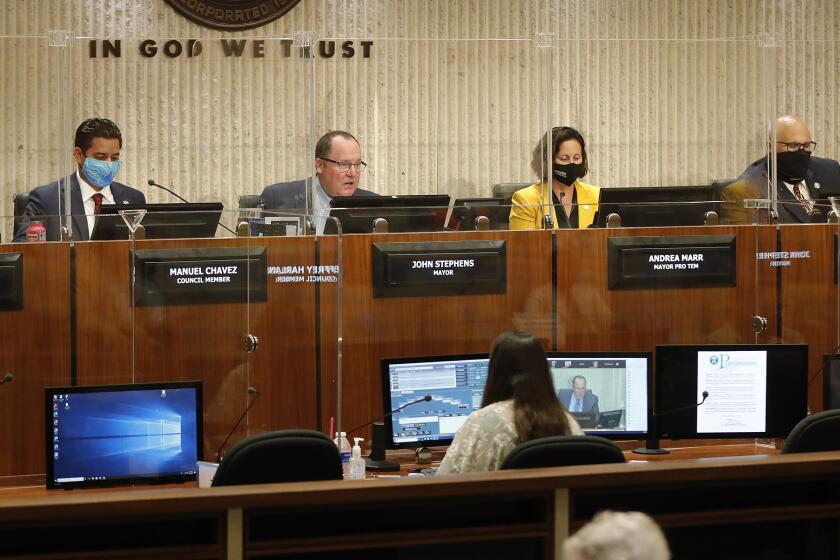Patience pays off for One Metro West, which will not go before Costa Mesa voters
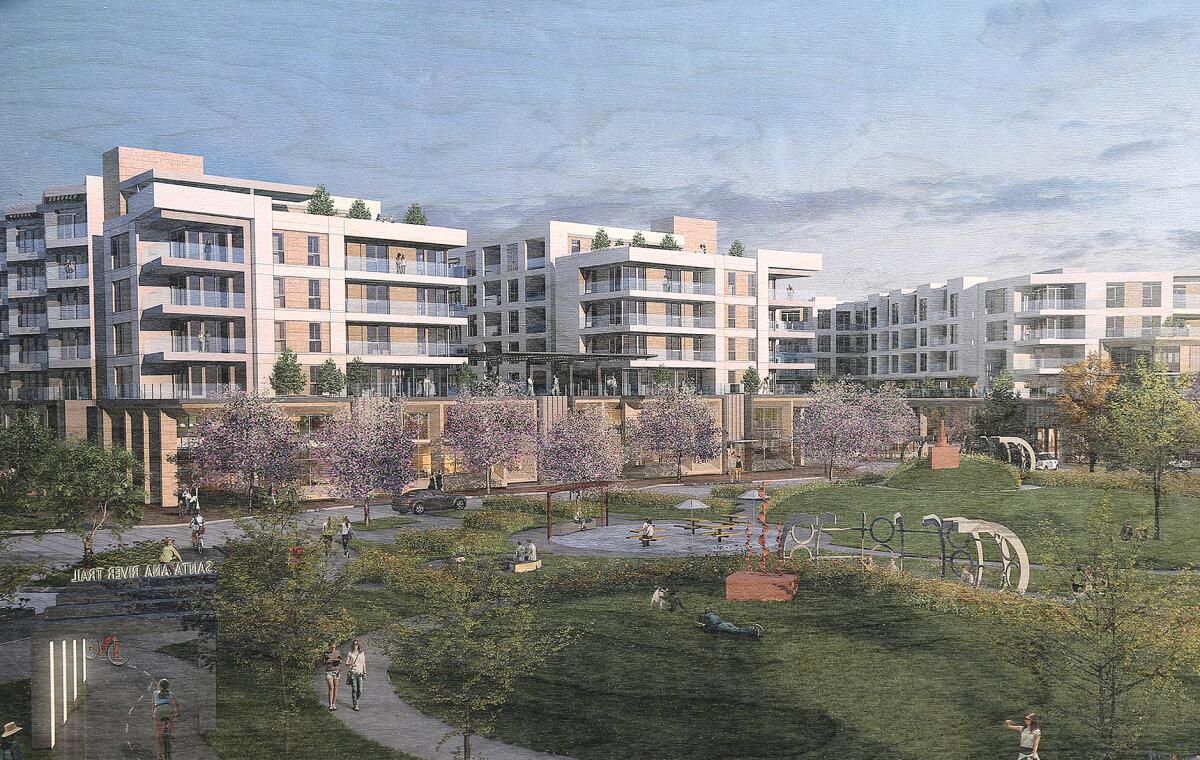
- Share via
After years of planning, One Metro West — a 1,057-unit mixed-use development whose designers say will create a live, work, play vibe north of the 405 Freeway in Costa Mesa — has finally been cleared for takeoff.
Although the project got the green light from city planning commissioners and council members in 2021, its fate ultimately fell into the hands of Costa Mesa voters, thanks to Measure Y, a 2016 initiative requiring certain large-scale developments be approved by a vote of the people.
And that’s where things stood. For years.
But on Tuesday, city officials approved amendments to a development agreement that, among other things, declared One Metro West exempt from the requirements of Measure Y and an election because of Measure K, passed in 2022.
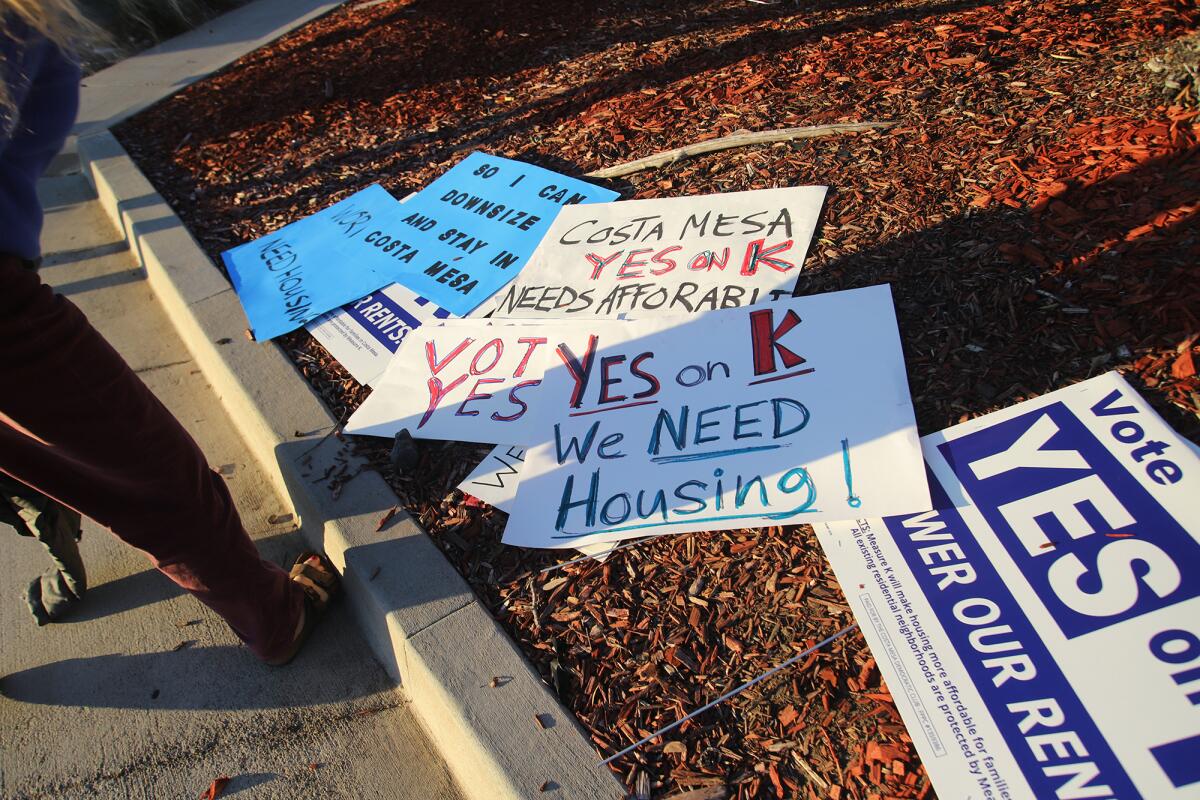
That law allows certain corridors in town to be rezoned for high-density developments without triggering a Measure Y vote, including the 15.23-acre parcel located at 1683 Sunflower Ave.
Citizens organized in a grassroots effort called Costa Mesa First, many of whom collected signatures to put Measure Y on the ballot eight years ago, have consistently opposed One Metro West for its potential noise, view and traffic impacts on the surrounding area.
A contingent of objectors shared their concerns again Tuesday, contending that because the project was approved when Measure Y was the law of the land, it should, therefore, adhere to those mandates.
Resident Cynthia McDonald pointed out that Measure K’s ballot language states it would take effect 10 days after the certification of the 2022 election had been adopted by city leaders.
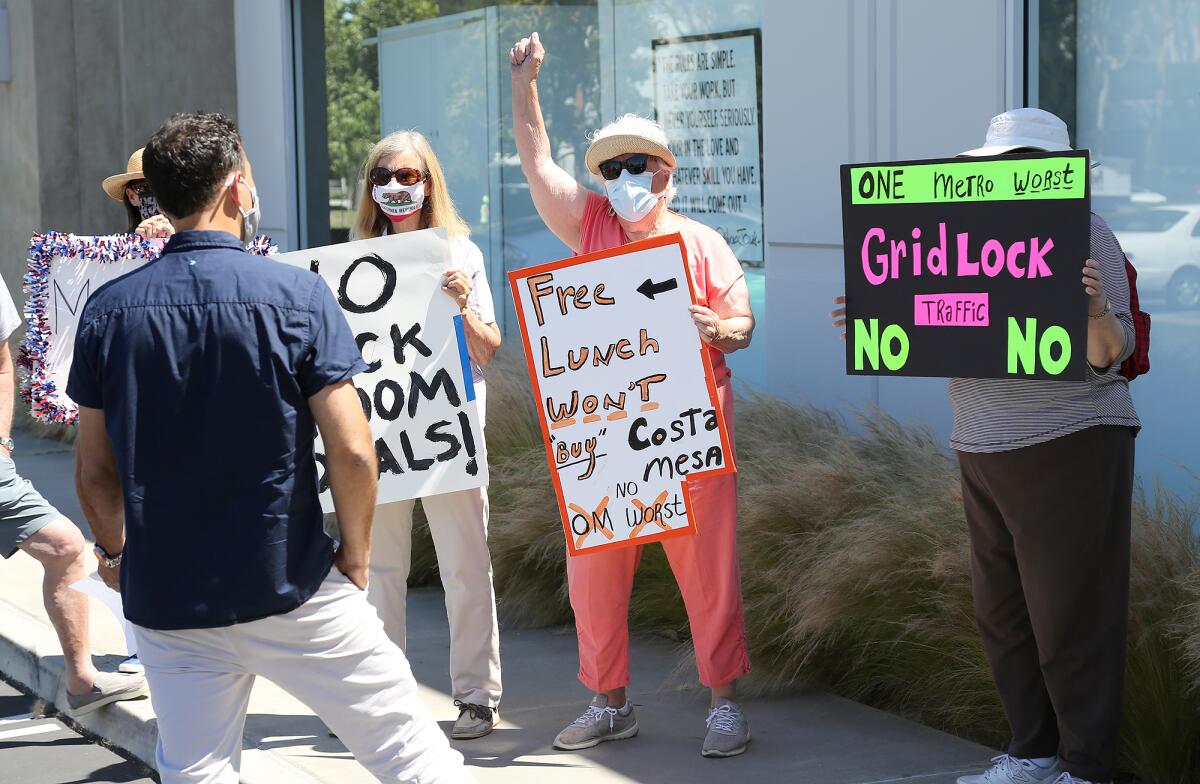
“Nowhere in Measure K does it say the ordinance modifies any prior entitlements granted to property owners, nor does it say that any conditions of approval of any entitlements granted prior to the effective date would be changed to eliminate the need for voter approval of the project,” McDonald said.
“This project must come to a vote of the people, as plainly stated in the conditions of approval.”
Tuesday’s hearing asked the City Council to consider ordinances amending the city’s development agreement with Beverly Hills-based Rose Equities, which states the developer will provide 1.5-acres of public open space, $16,532,789 in impact and developer fees to the city and 106 affordable housing units in exchange for the necessary entitlements.
Applicants requested variations, including a stipulation allowing members of the city’s planning and arts commissions to modify public art and landscaping requirements for a seven-story retail and commercial building fronting the freeway.
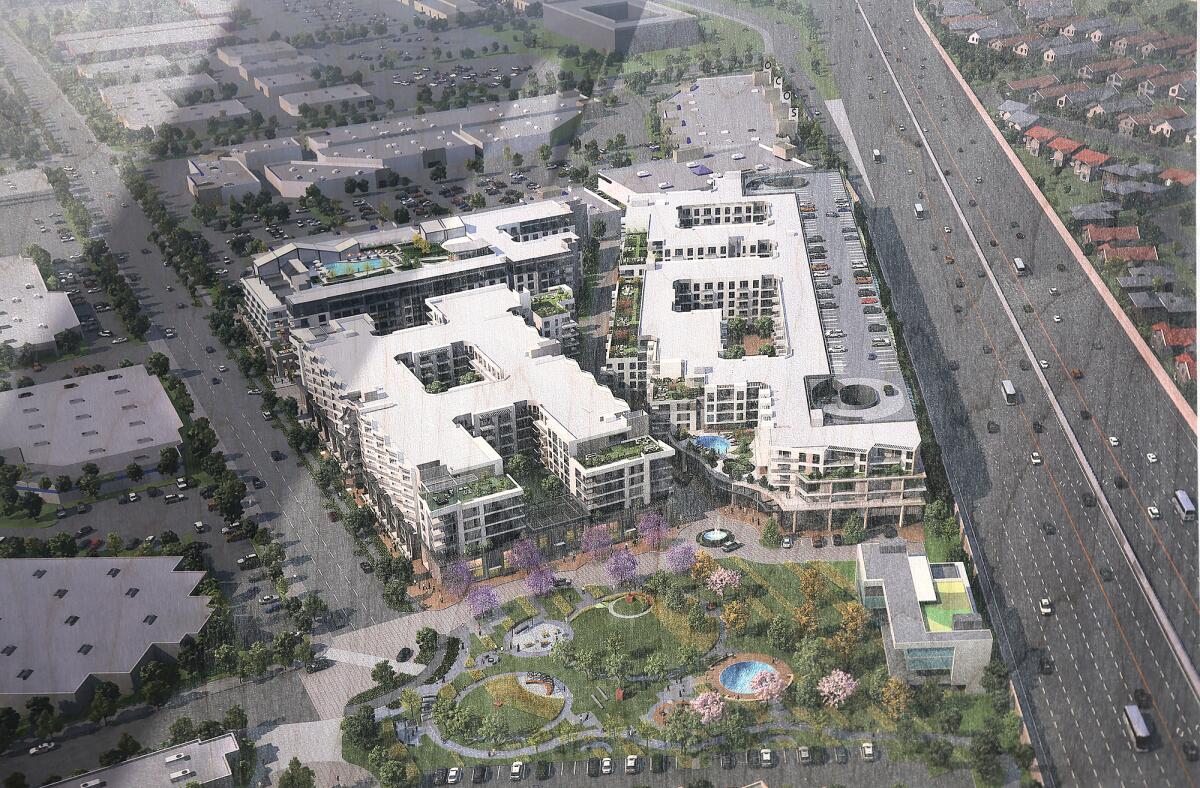
They further sought to break Rose Equities’ financial contribution into two installments, providing more than $8 million up front and another $9.8 million in five years’ time, which includes an accrued 3% interest rate, as phases of the work were completed. Doing so will increase the amount to $17,881,474.
Rose Equities partner Brent Stoll told the council it would be unsustainable for the firm to provide the entire $16.5 million upfront, given the building will occur in three phases, potentially starting by late 2025.
“Multi-phase projects such as One Metro West require thoughtful thinking and management as it relates to upfront costs and timing,” he said. “The proposal in front of you today prudently distributes some of the costs over time. Meanwhile, it affords the community significant community benefits during phase one.”
The fate of the controversial project hung in the balance Tuesday as Beverly Hills developer Rose Equities made a final pitch to the council in socially distanced chambers, where uniformed police enforced a 25-spectator cap.
Council members sought clarification from City Atty. Kimberly Hall Barlow on whether the passage of Measure K effectively nullified the previous popular vote clause triggered by One Metro West’s approval in 2021. Barlow affirmed that it did.
“These ordinances that are being approved are being approved under current law, which is Measure K,” she said, explaining voters in 2022 understood One Metro West was located in an area to which the initiative applied.
“This is not a retroactive OK of the ordinances adopted in 2021. This is an adoption of ordinances today in 2024 that will be effective now, under Measure K.”
Ahead of a 6-0 approval of the amendment ordinances (Councilman Don Harper was absent) council members spoke to an urgent need for housing, particularly among younger and low-income residents.
Councilman Manuel Chavez, the sole renter on the dais, explained that he voted for Measure Y in 2016 when he was 18 and later came to regret it.
“Measure Y basically meant if you had your place in Costa Mesa that you owned, you were secure. But everyone else had to fight for the scraps because no was going to build,” he said.
“Measure K was very targeted about where we were able to put housing. That’s why I feel comfortable supporting this motion to put this new development across the freeway and not in our own backyards,” Chavez continued. “It is going to be a change, but we need this.”
All the latest on Orange County from Orange County.
Get our free TimesOC newsletter.
You may occasionally receive promotional content from the Daily Pilot.
